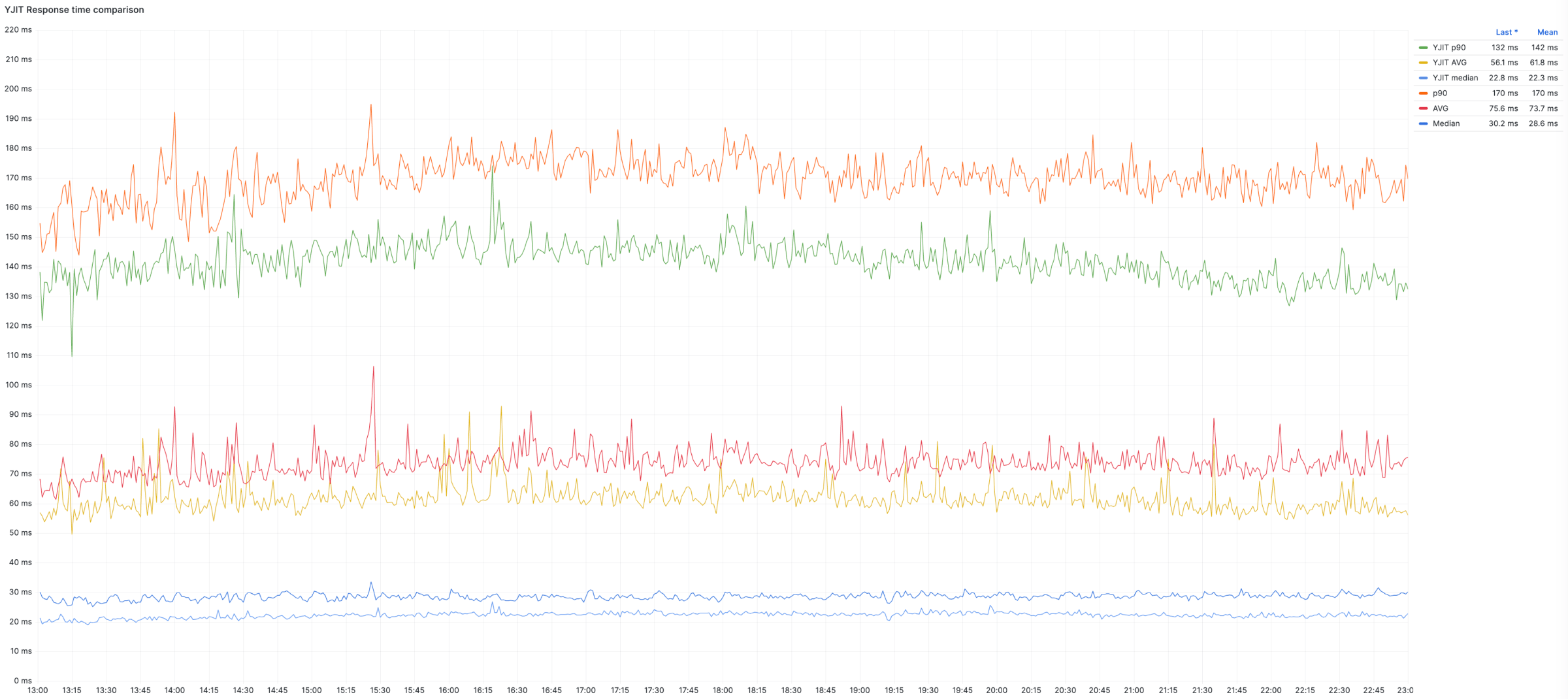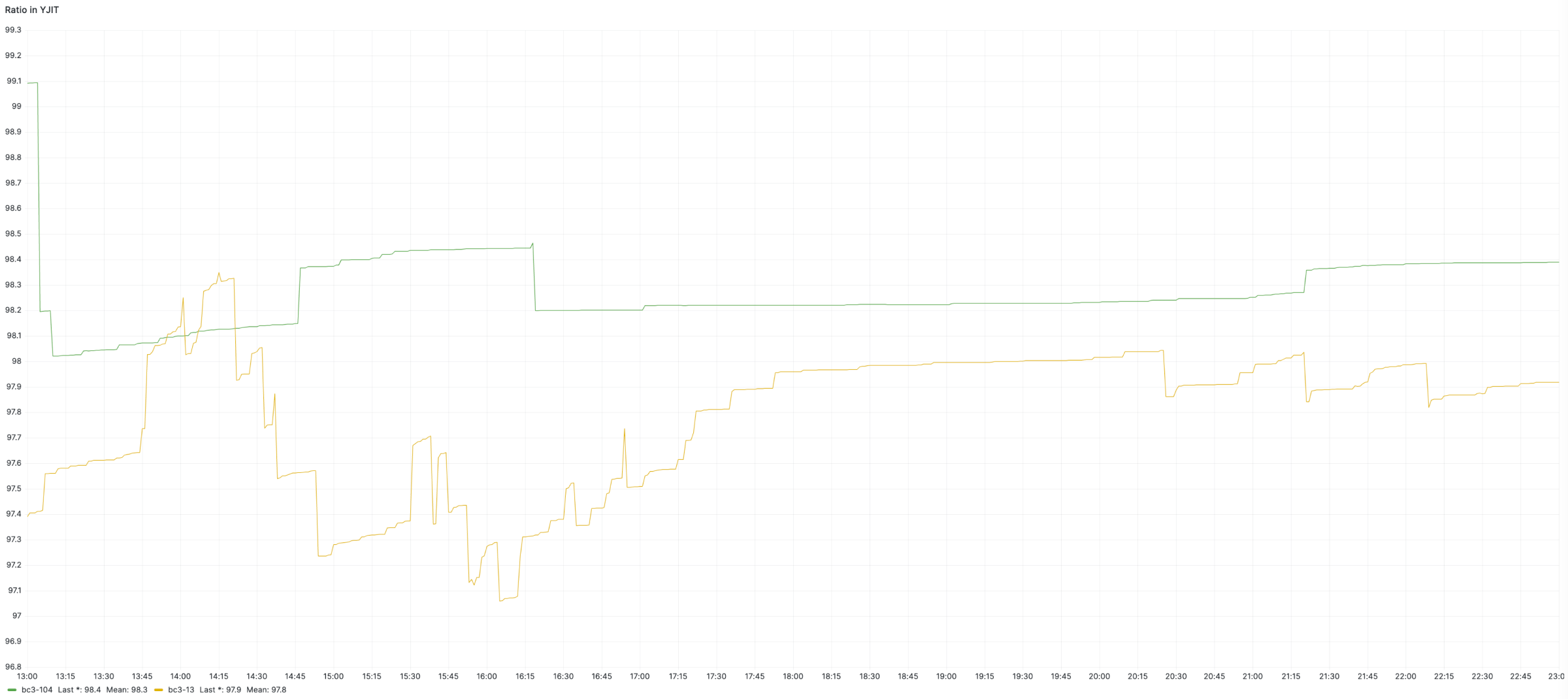Basecamp runs ~18% faster with YJIT. In this post I’ll share our setup, and the performance improvements we achieved.
Our setup
Basecamp is currently running Ruby 3.3.0-preview3 and Rails Edge (master branch).
We configure YJIT in our servers via RUBYOPT=--yjit-disable --yjit-exec-mem-size=192 and then enable YJIT at runtime via RubyVM::YJIT.enable. This allows us to achieve a faster boot time, compared to enabling YJIT at boot. We also enabled yjit stats to a few servers.
We track our metrics in Prometheus, using Yabeda to instrument, and Grafana to render them.
Performance
We found that our app works at best with a bigger memory size (192 MiB) than the default (128 MiB). We set it via --yjit-exec-mem-size=192 inside the RUBYOPT ENV variable. The value to set varies for each application. To find the best value for your app, I suggest you to measure the RubyVM::YJIT.runtime_stats[:code_region_size] and ensure it’s smaller than the --yjit-exec-mem-size.
Response time
With YJIT we saw improvements across the board in the range of 16-22%:
- Median: 22% faster
- AVG: 16% faster
- p90: 16% faster
Upgrade to Ruby 3.3.0
If you’re considering testing YJIT, I strongly suggest you upgrade to Ruby 3.3.0 as soon as possible. That’s where we achieved our biggest improvements. Indeed after the last Ruby upgrade we increased our YJIT ratio dramatically: From ~43% to ~98%. This means that 98% of our code is executed by YJIT instead of the (slower) Ruby interpreter, that’s a massive change. Below the graph of our current ratio_in_yjit:
Conclusion
Thanks to YJIT we achieved massive performance improvements across the board, with zero code changes at a cost of a little memory overhead. If you haven’t done it yet you should try it now: It’s just a matter of time and it will be enabled by default in Rails.
Sign up to get posts via email,
or grab the RSS feed.


